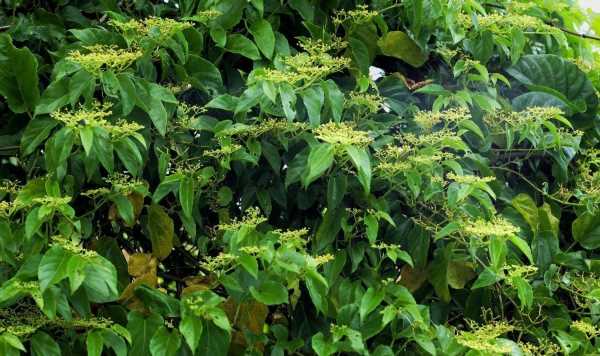Phil Spencer provides tips on improving a garden on a budget
We use your sign-up to provide content in ways you’ve consented to and to improve our understanding of you. This may include adverts from us and 3rd parties based on our understanding. You can unsubscribe at any time. More info
Whether it’s down to the layout or size of the garden, some outdoor spaces can deter buyers. As well as this, there are some common gardening “mistakes” which could “knock thousands” off your property value. Anna Hampshire, Head of Marketing at Marshalls, said: “If you’re thinking of selling your house, ensure that the garden is a selling point too.
“Gardens that don’t get sun all day should maximise the times when they do get it. For example, it would be a mistake to locate seating in a spot that’s shaded past 11am.
“Make sure large trees and shrubs don’t block the light from your windows and keep the space as open as possible.
“A poorly designed layout will deter a buyer, however, a well-designed one could help potential future owners imagine watching their kids play in it safely.”
1. Unkempt garden
A messy garden which is full of weeds and wild grasses, or even rubbish bags and gardening bags, can put buyers off instantly as it is seen as an inconvenience to them.

The expert noted: “It would cost a new buyer thousands to get a messy garden cleaned up and beautified by professionals.
“A messy garden could be both a bit of a deterrent as well as negatively affect the value of your property.”
Research by Foxton’s a couple of years ago suggested that a garden can add up to 20 percent to the value of a home, if it is tidy and free from weeds.
Property expert Phil Spencer also shared how a garden should be seen as another room in the home. In a video for Move iQ, Phil explained: “A decent outdoor space can definitely widen the pool of potential buyers, making the home much more appealing.
DON’T MISS:
10 crucial jobs to get your garden ready for spring [COMMENT]
Four houseplants ‘most effective’ at removing mould from your home [EXPERT]
‘Basic tips’ to keep cut flowers ‘fresher for longer’ [EXPLAINER]
“A well cared for garden is part of ensuring your home is presented for sale in the best possible light, so make sure sheds are cleared out and broken fences or gates are fixed.”
2. Poor drainage
Anna said: “Poor drainage could also knock thousands off the value of your property. A garden that’s prone to flooding needs to have adequate drainage – this could be green areas for water to soak away or a permeable patio or surface.
“If left unsorted, water could pool in areas that affect structures and look bad.” Bad drainage could also be an issue when it comes to keeping the garden healthy and green, especially if they become waterlogged.
If drainage issues aren’t too severe, Britons can solve the issue by improving the permeability of the soil in the beds.
READ OMORE: Interior choices to ‘avoid’ in your home this year

To do this, gardeners should dig in lots of organic matter which allows excess water to drain through it, while absorbing moisture it needs.
3. Invasive weeds
The expert continued: “Invasive plants just as Japanese knotweed are commonly found in gardens. They are a rapidly growing species and can unstoppably destroy structures such as building foundations and asphalt driveways.
“If they find their way into cracks in walls, they can expand them and even get in the way of water pipes.
“Merely removing them from the root will not kill them and it can cost thousands to get them professionally dealt with.”

English ivy is another common invasive plant which can cause structural damage if not taken care of.
The best way to remove ivy from a wall is to cut through the stem with a sharp saw and then dig out the root. Once the foliage has died, gardeners can carefully remove the stuck-on stems with a brush.
Gardening experts at Home Guides also said white vinegar was “effective” in getting rid of ivy.
They explained: “White vinegar is a safe, nontoxic method to kill the plant, as the vinegar’s acid content makes it an ideal weed killer among its many other home uses.
The pros also suggested using salt and soap to control the aggressive plant. They said: “Combine three pounds of salt with a quarter cup of liquid soap in one gallon of water, then pour the mixture into a spray bottle or garden sprayer.
“Apply boiling water to plant roots daily to kill ivy. Note that poison ivy will still retain its skin-irritating oils if you employ this method, so use tongs to remove the ivy.”
Source: Read Full Article
